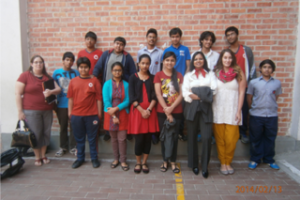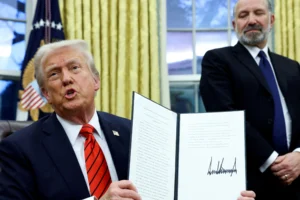Spain’s governing Socialists won the country’s third election in four years, but have fallen short of a majority.
PM Pedro Sánchez’s party polled 29% and will need the help of either left-wing Podemos and regional parties, or the centre right, to form a government.
For the first time since military rule ended in the 1970s, a far-right party is set to enter parliament.
Vox opposes multiculturalism, unrestricted migration, and what it calls “radical feminism”.
The other big story of the election was the collapse in support for the Popular Party (PP), which governed Spain until it was dumped from power in May 2018 in a no-confidence vote.
In its worst election ever, the PP won just 66 seats, down from 137 in the previous parliament.
Turnout was 75.8%, the biggest for several years and 9% higher than the previous election in 2016.
In his victory speech, Mr Sánchez said the party’s big challenges were to fight inequality, advance co-existence and halt corruption.
“The future has won and the past has lost,” he told cheering supporters. During his time in office he has raised the minimum wage, appointed a female-dominated cabinet and promised to bring in laws defining rape as sex without clear consent.
The result is a personal success for the prime minister, who increased his party’s share from 23% of the vote in 2016.
But it still leaves the Socialists and Podemos 11 seats short of the necessary 176 for a majority in the 350-seat parliament.






















